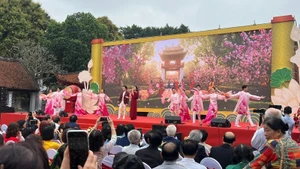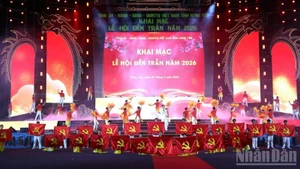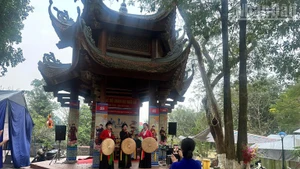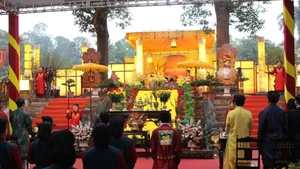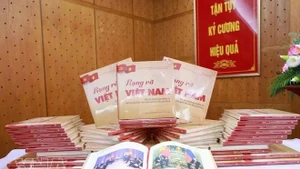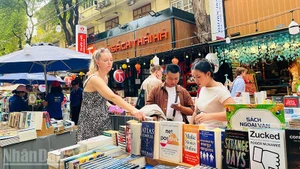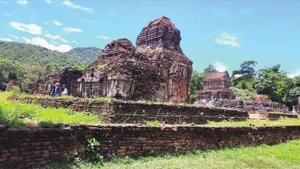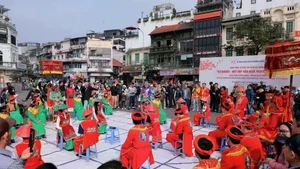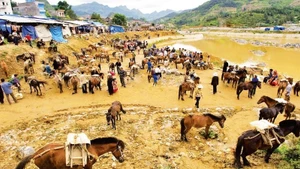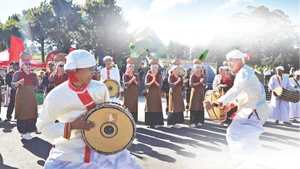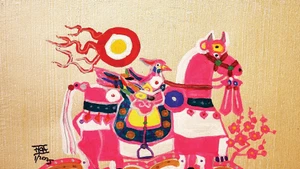A vivid documentary portrait
The collection, recognised by UNESCO’s Memory of the World Programme, is a rich archive documenting the nearly six-decade-long creative journey of one of the most prominent 20th-century Vietnamese composers. Its global and historical value lies in its profound meaning as a documentary legacy of international relevance.
According to UNESCO’s International Advisory Committee for the Memory of the World Programme, Viet Nam’s nomination dossier met numerous criteria and demonstrated outstanding value. Created during Viet Nam’s wars of resistance and subsequent national reconstruction, Hoang Van’s music is not only artistic but also serves as a form of sonic chronicle, capturing the thoughts and emotions of the people through different eras. His songs on labour, war, and love for the homeland reflect the lives of farmers, workers, and soldiers vividly and truthfully.
For the international community, the collection offers a lens into the journey of a war-ravaged nation that preserved its identity and hope. More importantly, the manuscripts, recordings and videos preserve not only melodies but also the stories behind them, from the sources of inspiration to performance contexts.
This collection is not only for music lovers but also serves as a valuable research resource for scholars of history, culture and ethnomusicology. The works and accompanying documents offer insights into the development of modern Vietnamese music and its connection with artistic movements in Asia and beyond. For international scholars, the collection is a window into how music can reflect and shape national identity in a post-colonial context.
Its richness of formats also contributes to the collection’s overall value. Among the more than 700 documents in the collection are 200 audio recordings, over 300 manuscripts (including full scores and arrangements), archival photographs, press articles, digital files, and studio recordings from the Voice of Viet Nam (VOV), alongside numerous performance recordings. Together, they create a vivid, comprehensive portrait of Hoang Van’s artistic career.
 |
| The Viet Nam National Commission for UNESCO congratulates the family of musician Hoang Van. |
Key highlights in the inscription process
Dr Vu Thi Minh Huong, Vice Chair of UNESCO’s Memory of the World Committee for Asia and the Pacific, member of the National Cultural Heritage Council, and former Director of the State Records and Archives Department, served as an advisor during the nomination process and helped secure unanimous support for the dossier. According to Dr Huong, the Hoang Van dossier carries special significance for the history of Vietnamese music, and one particularly noteworthy aspect lies in its embodiment of the concept of “carrier of information”—a technical term in archival science.
Hoang Van belonged to the last generation of composers in Viet Nam—and indeed, globally—who wrote music manually in ink on five-line manuscript paper. His collection includes many handwritten originals, especially full scores used in performances or recordings by VOV, the Viet Nam Symphony Orchestra, and the Viet Nam School of Music (now the Viet Nam National Academy of Music)—key institutions from the early days of Vietnamese academic music.
This is highly significant for researchers studying this historical period, as the manuscripts provide insight into the authentic creative processes of a composer. Later, with technological advances, younger musicians began composing directly using specialised software such as Sibelius or Finale, and the carrier of information shifted from paper to digital formats. This transformation has had clear implications for the storage and preservation of musical documentary heritage. “Hoang Van’s full scores are living evidence of a historic era in music, and they are original documents vital to the study of both musical theory and composition techniques,” Dr Huong explained.
Identifying such unique values was made possible through close collaboration between the composer’s family and experts in documentary heritage, history, and archiving. According to UNESCO guidelines, dossier assessment criteria are clearly defined. The family took the initiative to catalogue important content, which was then refined with expert input to clarify the elements of global value about the study of Vietnamese and international music history. The family’s role is especially commendable—not only preserving but also actively identifying the unique aspects of Hoang Van’s legacy. With expert support, these values were sharpened and strengthened throughout the nomination.
Dr Huong shared: “Under UNESCO’s criteria for the Memory of the World Register, a collection does not need to meet all criteria—it only needs to demonstrate outstanding value based on the most relevant ones. In the case of the Hoang Van dossier, the collection excelled by simultaneously meeting several major criteria, including authenticity, historical value, and diversity of material formats.”
The dossier team, comprising family members of the late composer, also strategically highlighted two key criteria: global significance and one of UNESCO’s current priority themes: gender. Hoang Van’s compositions, research, and articles are not only relevant to Viet Nam but have also drawn international scholarly attention, contributing to world music in content and documentary form. This is a mandatory requirement for all nominations.
“Notably, the entire collection has been transferred to the National Archives Centre III, one of four major archival centres under the State Records and Archives Department. This ensures optimal preservation conditions, avoiding risks such as fire or humidity, constant threats in domestic environments, and was considered a major advantage by UNESCO’s International Advisory Committee during its assessment,” Dr Huong emphasised.
The family of Hoang Van, led by musicologist Le Y Linh (his daughter) and conductor Le Phi Phi (his son), has digitised the collection and made it publicly accessible on the website hoangvan.org in five languages. This noteworthy effort ensures the legacy will not fade but instead continues to inspire generations to come.
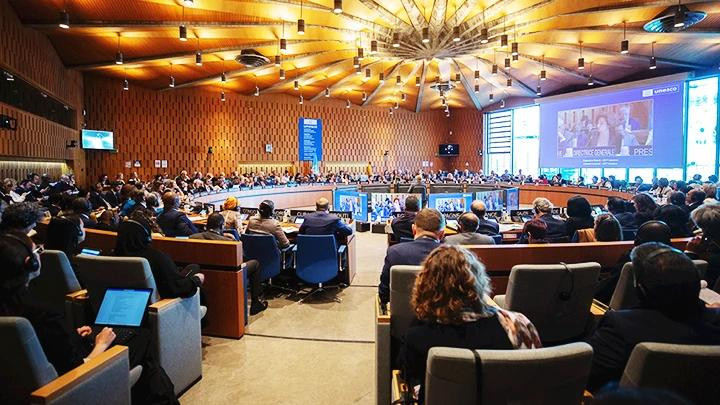

![[In Pictures] Procession of giant “Lord Pigs” weighing over 200kg at La Phu Village Festival](https://en-cdn.nhandan.vn/images/9f233ae74386156ace55673ec5a8ea373e7bb5df2274800bfd51bda6ec86d946ac1c392948518c6b0493c4028e062086d61e162f1bde5f06b033cfb48e75970298e3f24f2e8ecbfa7996f109382f9907/ruoc-lon-la-phu-11-4212.jpg.webp)
